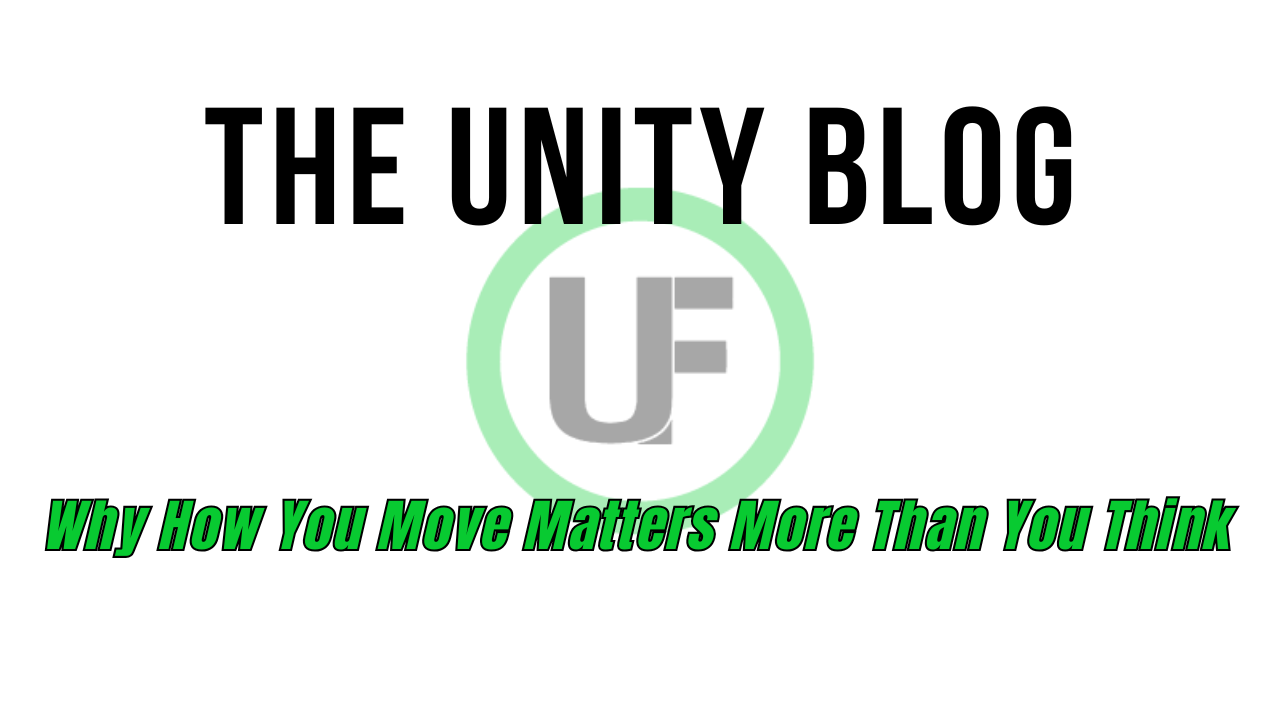Assess, Don't Guess
Jun 18, 2025
Let’s be honest—most of us don’t think twice about how we move until something starts to hurt. Maybe it’s a tight back after gardening, or a shoulder that nags you after picking up your kid (or your golf clubs). But here’s the thing: the way your body moves day to day plays a huge role in your long-term health, your confidence, performance, and even how good you feel getting out of bed in the morning.
This is where movement assessments come in—and no, they’re not just for pro athletes or physical therapy sessions.
A movement assessment is like a check engine light for your body. It helps you (and your coach or trainer) see what’s working well and what might need a little TLC before it turns into a bigger issue. A movement assessment also takes the guess work out of what's going on in your body. As we like to say at Unity FItness, "Assess, don't guess."
So, what exactly is a movement assessment?
A movement assessment looks at how your joints, muscles, and nervous system work together during basic tasks—things like squatting, reaching, bending, playing, or even walking. It’s not about how “fit” you are or how much you can lift. It’s about how your body functions.
One of the most popular tools out there is the Functional Movement Screen (FMS). According to a study published in The Journal of Strength and Conditioning Research, individuals with poor FMS scores were more likely to experience injuries during physical activity compared to those who scored higher (Kiesel et al., 2007). We use the FMS at Unity Fitness and combined that with another, not quite as commonly known tool, known as the Active Life Screen (ALS).
The ALS goes beyond movement alone and also assesses pain, posture, strength limitations, and lifestyle factors. It’s especially useful for those who want to stay active but might be dealing with lingering aches, past injuries, or physical restrictions. It helps identify what’s holding you back—so your training can focus on what moves you forward.
The FMS and ALS represent the BASE of our physical assessments and help us deteremine what additional physical assessments or tests are needed. We call this The Unity Screen (TUS) and it helps us identify information from how a person moves while referencing standardized data, both qualitatively and quantitatively.
Translation: how you move matters more than how much you move.
Why should you care?
Because you’re not just working out to work out. You’re training for life—whether that’s keeping up with your kids, feeling better at your job, playing recreational sports, or just aging well with strength and confidence.
We like to think you're training with intention, or purpose. You're training for the life you want to live.
A movement assessment is part of your initial assessment with us (which also includes health and exercise history, injury history, lifestyle, etc.).
When your body moves efficiently, everything becomes easier. You gain:
✅ Better results from your workouts (because you're not fighting against your own imbalances)
✅ Reduced risk of injury (because your joints and muscles are working with you, not against you)
✅ More energy and less pain (because your body isn’t compensating or overworking the wrong muscles)
✅ Improved performance in whatever you love to do—whether that’s running, biking, lifting, golfing, or just walking your dog
Personalized programs > generic workouts
After a movement assessment, you’re not guessing anymore. You know what your body needs—and your program can be tailored around that. That means correcting muscle (and strength) imbalances, improving joint mobility, and building strength where it matters most for you.
A study in Sports Health (Cook et al., 2014) found that movement assessments followed by individualized corrective training led to significant improvements in movement quality and performance outcomes.
In other words: customized training just works better. It puts the "personal" into personal training.
Bottom line?
If you’re going to spend time and energy working out, why not make sure it’s actually what your body needs?
So whether you’re brand new to training or you’ve been in the game for years, taking a closer look at how your body moves could be the difference between hitting your goals—or spinning your wheels.
Want to move better, feel better, and train smarter? It all starts with how you move.
It continues for training for the life you want to live.
If you'd like to set up a VIP Health and Fitness Assessment with one of our professionals that covers all of the information noted above (including our TUS), simply follow this link to book a free Discovery Call with us and mention that you read this blog post!
Book your free consultation, called the No-Sweat Jumpstart Session to see if we're the right gym for you! If not, we'll refer you to one that's a better fit.
Stay connected with news and updates!
Join our mailing list to receive the latest news and updates from our team.
Don't worry, your information will not be shared.
We hate SPAM. We will never sell your information, for any reason.

